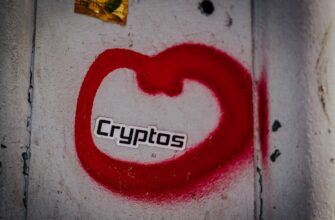Receiving free crypto tokens through airdrops might feel like winning the lottery, but in Brazil, the tax authorities see it differently. If you’ve acquired cryptocurrency through airdrops, understanding your tax obligations is crucial to avoid penalties. This guide breaks down exactly how to handle airdrop income under Brazilian tax law, ensuring you stay compliant while navigating the complex world of crypto taxation.
- Understanding Airdrop Taxation in Brazil
- How the RFB Treats Crypto Airdrops
- Step-by-Step Guide to Reporting Airdrop Income
- Penalties for Non-Compliance
- Tax Optimization Strategies
- Frequently Asked Questions (FAQ)
- 1. Are small airdrops under R$100 taxable?
- 2. How do I value airdropped tokens with no immediate market?
- 3. Do I pay tax again when selling airdropped tokens?
- 4. Can I use foreign exchanges to avoid reporting?
- 5. What if I received airdrops before 2024 but didn’t declare?
Understanding Airdrop Taxation in Brazil
Brazil’s tax authority, Receita Federal do Brasil (RFB), classifies cryptocurrency airdrops as taxable income under Normative Instruction No. 1,888/2019. Unlike some countries that treat airdrops as gifts, Brazil considers them ordinary income at the moment you gain control of the tokens. The taxable amount is based on the asset’s fair market value in Brazilian Reais (BRL) at the time of receipt. This applies regardless of whether you immediately sell the tokens or hold them.
How the RFB Treats Crypto Airdrops
The RFB mandates strict reporting of all crypto transactions, including airdrops. Key principles include:
- Income Classification: Airdrops are taxed as ‘other income’ (outros rendimentos) on your annual DIRPF tax return
- Valuation Method: Use the average market price across major exchanges on the day of receipt
- Threshold Rules: All airdrops must be reported regardless of value (no minimum exemption)
- Exchange Reporting: Brazilian exchanges automatically report user transactions to RFB
Step-by-Step Guide to Reporting Airdrop Income
- Record Transaction Details: Note the date, token amount, and market value in BRL at receipt
- Convert to BRL: Use exchange rates from reliable sources like Mercado Bitcoin or Binance
- Complete DIRPF Form: Report under ‘Rendimentos Sujeitos à Tributação Exclusiva/Definitiva’
- Use Field-Specific Codes: Enter code 88 (Other Income) in field 06 of the form
- Maintain Documentation: Keep exchange records, wallet addresses, and valuation proofs for 5 years
Penalties for Non-Compliance
Failing to report airdrop income can trigger severe consequences:
- Fines of up to 20% of unpaid tax + monthly interest (Selic rate)
- Back-tax assessments for up to 5 previous years
- Potential criminal charges for tax evasion over R$500,000
- Restrictions on financial transactions via BacenJud
Tax Optimization Strategies
While you can’t avoid taxation, these methods can reduce liabilities:
- Offset Gains with Losses: Deduct capital losses from other crypto investments
- Strategic Timing: Sell during low-income years to benefit from lower tax brackets
- Professional Guidance: Consult a contador specializing in crypto taxation
- DCA Reporting: Use specific identification method when selling portions of airdropped tokens
Frequently Asked Questions (FAQ)
1. Are small airdrops under R$100 taxable?
Yes. Brazil has no minimum threshold for crypto income reporting. All airdrops must be declared regardless of value.
2. How do I value airdropped tokens with no immediate market?
Use the value of equivalent tokens on major exchanges. If unavailable, document your valuation method and report at R$0 until market value is established.
3. Do I pay tax again when selling airdropped tokens?
Yes. You’ll pay income tax upon receipt and capital gains tax when selling. The cost basis for gains calculation is the declared value at receipt.
4. Can I use foreign exchanges to avoid reporting?
No. Brazilian residents must declare worldwide income. RFB receives automatic data from global exchanges under CRS agreements.
5. What if I received airdrops before 2024 but didn’t declare?
File a rectifying statement (DIPJ) immediately. The Special Regularization Program offers reduced penalties for voluntary disclosure.
Staying compliant with Brazil’s crypto tax regulations protects you from penalties while legitimizing your cryptocurrency activities. Always consult a qualified tax professional for personalized advice regarding your specific situation.








